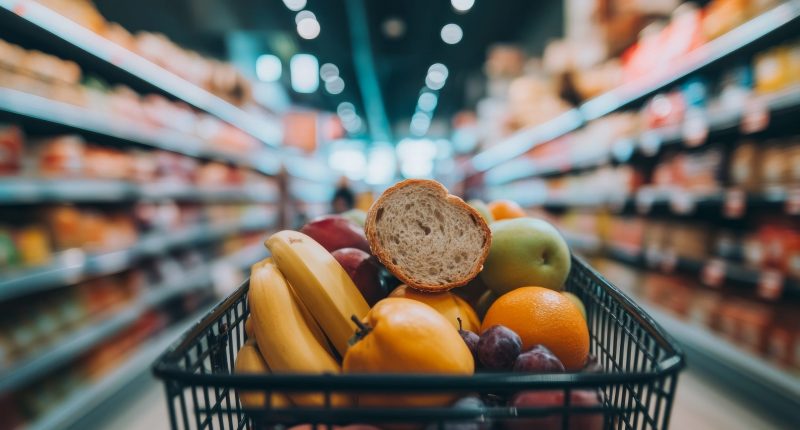It’s no secret Australia’s supermarket sector is extremely concentrated, with Coles and Woolworths dominating the scene Down Under for some years now.
Listen to the HotCopper podcast for in-depth discussions and insights on all the biggest headlines from throughout the week. On Spotify, Apple, and more.
Both can significantly influence the experience of shoppers on one end and the economic viability and practices of producers on the other.
The first of these has been a headline issue in the last two years, with the Australian Competition and Consumer Commission (ACCC) taking the supermarket giants to court in September 2024, accusing them of misleading marketing via Woolworths’ “Prices Dropped” and Coles’ “Down Down” campaigns.
However, in a follow-up enquiry completed in February 2025, the regulator expanded its concerns into the relationship between producers (including agricultural and horticulture growers) and the supermarkets they do business with, finding the dominance of ‘Colesworth’ is equally problematic there.
Colesworth domination here to stay?
In its ‘Supermarkets Inquiry’, the ACCC confirmed the significant market share held by Woolworths and Coles, acknowledging they accounted for 38% and 29% of supermarket grocery sales in Australia.
In third place was ALDI at 9%, while wholesaler Metcash – which supplies independent supermarkets – came up last at 7% in the supermarket rankings.
This formation plays an important role in shaping the national product pricing environment, with the regulator stating that “Coles and Woolworths have limited incentive to compete vigorously with each other on price.”
It added that while ALDI offered a viable low-cost alternative for shoppers – and could therefore act as a “source of price constraint” on the two giants, especially when there was product overlap across all three, it did not compete with them head-to-head across the whole range of products.
More market news
Levy beef: Trump whacks Oz with 10% tariffs on “Liberation Day”
Meet GeoGeorge: The HotCopper poster so accurate he got hired as an analyst
Independent grocery stores – represented by Metcash – often played an important role in servicing local needs, particularly in areas outside Australia’s urban centres, where Woolworths, Coles, and ALDI aren’t always present.
(The ACCC also noted independent stores had been losing market share over time.)
Crucially, the inquiry confirmed the market structure of Australia’s supermarket sector which it described as “oligopolistic” – was unlikely to change soon.
Producers and supermarket buyers: a relationship of imbalance
When it comes to the supply chain for fresh produce in Australia, supermarkets – particularly the two majors – are influential players, and this is particularly enhanced when it comes to the horticulture sector.
Woolworths has been buying up between 20% and 25% of the country’s fruit and vegetable supply (excluding processing), while Coles procured approximately 15%.
The ACCC has acknowledged that due to this framework, business arrangements negotiated between supermarkets and growers influenced the production cycle, the pricing of goods, and also the viability of some growers’ and producers’ businesses.
To find out more, the regulator held a series of roundtables with farmers and wholesalers across Australia to gain insight into how farmers and wholesalers perceive this relationship and to hear about their experiences within the supermarket supply chain.
What they found was many suppliers were reluctant to raise concerns about the trading relationship due to fear of retribution; they feared the latter companies being able to practice ‘monopsony’ power in these relationships.
This refers to a situation in which a company can affect the overall market price of a product through its control of a significant chunk of upstream purchases. It can take the form of a price reduction (when the company buys less of it), or even a price increase (when the company purchases more).
The inquiry found many producers felt they had “little choice but to agree to highly unfavourable terms, including lower prices than they would expect if Coles and Woolworths faced greater competition from other buyers,” in addition to feeling under pressure to use ancillary services (such as freight or marketing) that came from the supermarkets in question, even if these were perceived to offer substandard services.
Also highlighted was the problem of information asymmetries which were sometimes taken advantage of by Coles and Woolworths: Resulting in suppliers themselves being unable to make the best business decisions for themselves.
The ACCC concluded protections offered under existing regulatory codes – such as the Food and Grocery Code – should be strengthened to support suppliers.
Supermarket dominance and the sustainability of Australia’s food system
The unequal relationship between farmers and supermarket buyers may also have a detrimental effect on the former’s capacity to adopt sustainable practices that benefit Australia’s food system overall, according to the Australian Conservation Foundation (ACF).
ACF corporate campaigner Bonnie Graham said several of the concerns raised by the ACCC’s inquiry reflected wider problems of sustainable food production and protection of the environment.
“The competition regulator has highlighted how the supermarket giants’ market dominance means farmers are less able to make informed decisions about how to invest in their businesses,” she explained to HotCopper.
“When Aussie producers don’t have the confidence to invest in their farms, this negatively affects the long-term viability and sustainability of Australia’s food system.
“Many farmers want to adopt nature and climate-friendly production methods to future-proof their businesses and Australia’s food security: the major supermarkets should support their suppliers in making these changes that benefit all of us.”
Major food companies need to ‘urgently address their role in the nature crisis’
Ms Graham said adjacent issues connecting food production and environmental sustainability had been raised in the ACF’s Future of Food report, released in July 2024, which assessed 20 major food companies in Australia on how they measured up to 37 indicators of sustainable practice.
A crucial issue for the companies – which included Coles and Woolworths, McDonald’s, Hungry Jacks, Aldi, Bega, and Sanitarium – was their inability to track commodities back to the farm level, with only nine of 20 being able to.
“Food supply chains are incredibly complex, with most food companies purchasing ingredients from middle suppliers, not from the farmers themselves,” Ms Graham said.
“There are often several suppliers and processors between the farm gate and the factory, making it harder for food companies to trace their ingredients back to farm level.”
This made it extremely hard to know how the associated supply chains might be impacting nature, according to the report.
The Future of Food also emphasised the importance of companies following international best practices in setting deforestation targets connected to their production, with some, like ALDI, already ahead on this issue.
“ALDI is a multinational company with headquarters in the EU, and the EU has stronger laws on deforestation and supply chain sustainability than Australia,” Ms Graham said.
“This is most likely the biggest factor in Aldi becoming the first Australian supermarket to adopt a deforestation-free policy.
“Since the Future of Food report was published, Woolworths has also set a deforestation-free target for its products by the end of 2025. Woolworths’ commitment includes beef, which is the biggest driver of deforestation in Australia.”
Join the discussion: See what’s trending right now on Australia’s largest stock forum and be part of the conversations that move the markets.
The material provided in this article is for information only and should not be treated as investment advice. Viewers are encouraged to conduct their own research and consult with a certified financial advisor before making any investment decisions. For full disclaimer information, please click here.









